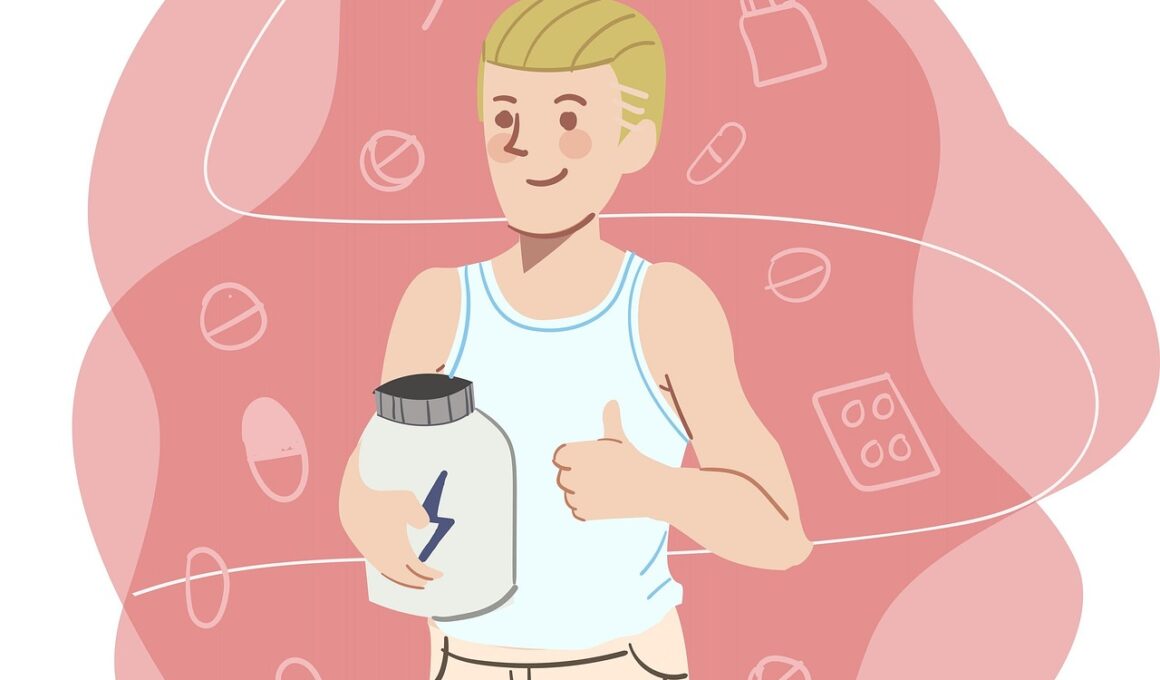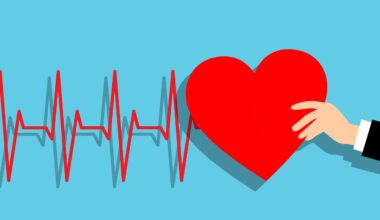The Impact of Meal Timing on Evening Workout Outcomes
Understanding pre-workout nutrition is crucial for enhancing performance, particularly for evening workouts. The timing of meals significantly influences energy levels and body composition outcomes. Evening workouts can be particularly challenging due to fluctuating energy levels from the day’s eating habits. To optimize performance, ensure you have consumed a proper meal 2 to 3 hours prior to exercising. This allows for optimal digestion and energy availability. Nutrients from the meal provide the essential fuel necessary for a rigorous workout. Protein is highly important for muscle repair and growth, while carbohydrates are a primary source of energy. Incorporating healthy fats can support prolonged energy levels. A balanced meal composition of carbohydrates and protein optimally supports workout performance, aiding recovery and muscle synthesis. A well-timed meal can also help in avoiding fatigue and improve overall workout efficacy. Hydration is another key component to consider in your evening routine. Consume adequate fluids to maintain hydration levels throughout the day. In essence, how you time your meals can greatly impact the outcomes of your evening workouts.
Next, meal composition plays a vital role in performance. Eating a meal rich in carbohydrates and protein will provide more energy compared to one lacking sufficient macronutrients. Carbohydrates replenish glycogen stores, fueling your workout, while protein aids in muscle repair. It’s essential to focus on the quality of carbohydrates consumed; opt for complex carbs like whole grains, fruits, and vegetables. These types of carbs digest slowly, providing a sustained energy source throughout your workout. Lean proteins, such as chicken, fish, or plant-based options, contribute to muscle recovery. Combine these elements into a pre-workout meal ideally containing 40-60% carbs and 20-30% proteins. This balance ensures a consistent energy release, maximizing your performance potential. Timing this meal appropriately allows your body to assimilate the nutrients effectively, providing sufficient energy for an evening session. In addition, take care to avoid heavy or fried foods, as they can lead to feelings of sluggishness or upset stomach during workouts. Thus, being strategic with your meal composition and timing can have substantial effects on your physical performance and workout gains.
Effects of Late-Night Eating on Sleep
Eating late can also affect your sleep quality, which indirectly impacts workout performance. It’s essential to consider how meal timing may influence your ability to recover. Consuming heavy or high-calorie meals too close to bedtime can disrupt sleep patterns, leading to poor recovery. A well-rested body is crucial for optimal physical performance and muscle recovery. Aim to finish your last meal at least two hours before bed, which allows you time to digest your food properly. Difficulty in digestion can lead to discomfort, which may hinder your sleep. Inadequate sleep can affect hormone levels, such as cortisol and growth hormone, affecting muscle growth and fat loss. Additionally, lack of sleep could decrease your motivation to engage in evening workouts; fatigue can inhibit your ability to push through workouts. Hence, healthier meal choices should be prioritized. If you must eat later, choose lighter meals focused on lean proteins and healthy fats, making sure to avoid any stimulants like caffeine that could also affect sleep quality. Monitoring your nutrition timing and its impact on your sleep can optimize both recovery and performance.
Moreover, the psychological aspect of pre-workout nutrition should not be overlooked. Knowing you have consumed the right nutrients can boost your confidence before heading to an evening workout. Confidence not only enhances performance but also encourages consistency in maintaining a workout regime. By developing a pre-workout ritual that includes healthy eating habits, you can create a positive mindset about your workout preparation. This mental readiness can significantly influence how effectively you perform during your workouts. Additionally, it’s vital to listen to your body’s hunger cues. Each person’s nutritional needs vary, depending on their exercise intensity and duration. Not everyone may require a large meal before their evening workout; you should tailor your pre-workout nutrition to personal preferences. For some, a small snack containing protein and simple carbs about 30-60 minutes before exercising may be sufficient. Others might need a more substantial meal earlier in the evening. Whatever your approach, aim for nutritional adjustments that enhance performance while keeping you engaged and motivated to work out.
Considerations for Optimal Pre-Workout Nutrition
The type of workout you plan may also dictate the specifics of your pre-workout meal. Resistance training may benefit from higher protein intake days ahead of workouts, while endurance workouts may require greater carbohydrate loading. The timing of these meals, in conjunction with the carbohydrate vs. protein ratio, can influence energy levels and recovery. For example, if you plan to focus on weightlifting, you might want to prioritize protein. Alternatively, if running or high-intensity interval training is on your agenda, prioritize quick-releasing carbohydrates. This allows your body to quickly synergize energy during workouts. Regardless of the focus, hydration continues to matter immensely. Your muscle health and exercise efficiency will undoubtedly decline without adequate hydration, so ensure you’re well-hydrated throughout the day. Prior to workouts, hydration should be emphasized; drink water before ingesting solid food. You should also hydrate during workouts, and this means having a plan for those sessions as well. Planning your pre-workout nutrition strategy according to your training’s nature can empower you to achieve remarkable performance outcomes.
Furthermore, integrating nutrient timing strategies with hydration can produce enhanced results. For evening workouts, consider drinking a combination of water with electrolytes about 30 minutes before diving into your session. This ensures that your body is properly primed and preventing dehydration during physical activity. Electrolytes are essential for muscle function and can be depleted through sweat. Since evening workouts often occur later when people are tired, their hydration needs can be inadvertently overlooked. Additionally, the inclusion of easy-to-digest snacks post-workout within 45 minutes can help replenish muscle glycogen replenishment and minimize muscle soreness. This interval is critical for muscle repair and rebuilding post-exercise. Meals rich in nutrients, like a combination of protein shakes with fruits, are excellent post-workout options. The timing of these meals, in context with your evening workouts, can be vital for your progress. This fact highlights the importance of a planned approach to your pre and post-workout nutrition. Assessing these hydration tactics allows you to fine-tune your routine to improve overall performance during evening workout sessions.
Conclusion and Takeaways
To conclude, meal timing around evening workouts is a critical factor for achieving optimal fitness goals. Proper pre-workout nutrition enhances performance, improves energy levels, and aids in recovery. For the best outcomes, consume a well-balanced meal that includes carbohydrates and proteins 2 to 3 hours prior to your workout. Avoid heavy meals close to your session to ensure good digestion and energy levels. Moreover, hydration and meal composition play crucial roles in your physical performance. Listening to your body’s hunger cues helps personalize your nutrition approach, whether via pre or post-workout meals. Remember, the psychological impact also adds weight to meal timing strategies, where confidence can enrich workout outcomes. Depending on your evening regimen, tailor your nutrient intake according to workout specifics and desired results. Lastly, integrate proper hydration with your nutrition plan to set yourself for success in your fitness journey. By implementing these strategic nutrition practices, your evening workouts can bring about significant progress and satisfaction, leading to a healthier lifestyle overall.
This brings us to the crux of pre-workout nutrition efficacy. With a strategic approach, one can foster better workout outcomes, transforming evening sessions into a time of heightened performance. Mirroring your body’s needs with nutrition is the key to elevating your workout game. Each of these guidelines caters to not only immediate performance enhancement but also long-term wellness goals. Embracing a comprehensive nutrition strategy, while recognizing the role meal timing plays, will ensure valuable returns on your efforts in the gym. Consistent application might lead to noticeable weight shifts, increased strength, and improved composition, amplifying desired results. Through dedicated practice of meal timing, evening workouts can be a source of empowerment rather than fatigue. A commitment to a structured approach in meal selection and timing is indispensable to your fitness success. With attention to detail in your pre-workout nutrition, you can maximize your training efficiency and efforts. Tailoring these insights to fit within your unique lifestyle ultimately solidifies them into a sustainable routine that inspires ongoing improvement.


